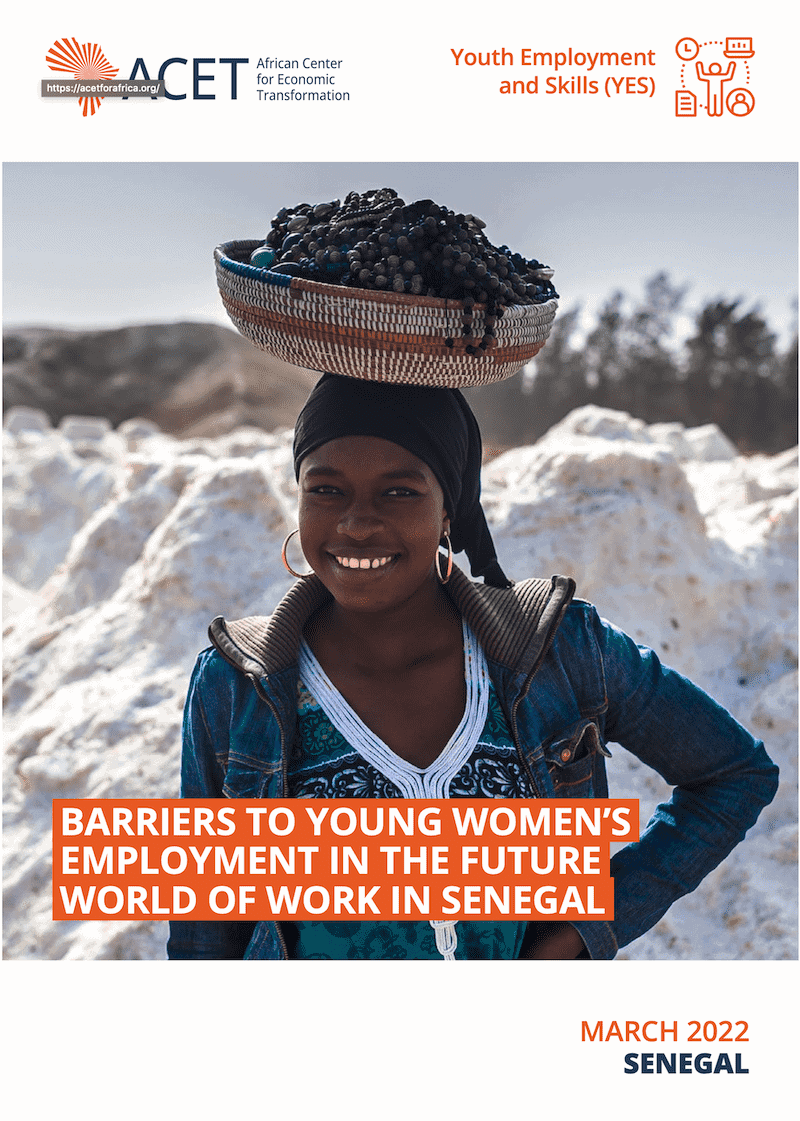Senegal has made the empowerment of women an essential pillar of the Plan Sénégal Emergent, the unifying framework of public policy. Efforts have been made in support of women’s empowerment and the reduction of gender inequalities over the years, notably through the adoption of the National Strategy for Gender Equity and Equality in 2005 and the establishment of institutions and funding mechanisms. Among these, prominent initiatives include the Social Development Fund (2002–2005), the National Fund for the Promotion of Women’s Entrepreneurship (2004), the Microfinance Impulse Fund (2005), and the Fund for Promotion of Food Security (2013).
However, the economic empowerment of women in Senegal remains a challenge due to the complexity of the socio-cultural environment. Even though the process of deconstructing mindsets is well underway, gender relations are shaped by longstanding sociocultural norms and customs that establish hierarchical relationships in which males are dominant and females are subordinate. Although these relationships vary by urban/rural location, income level, ethnic group, and religion, Senegalese society in general expects women to be wives and mothers, performing (unpaid) household and domestic work including childbearing and rearing, care and maintenance of the household, and subsistence agriculture.
These gender norms play out in privileging male access to leadership opportunities in formal positions in the public and private sectors. Social institutions reflect and support male preferences and leadership styles, often creating work environments that are not conducive or are even hostile to women’s empowerment through leadership opportunities, promotion, or equal pay. Therefore, from lack of access to land to poor education, and unfavorable social norms, Senegalese women face several barriers to accessing good-quality jobs or to developing high-value-added businesses.
This situation appears to be worsening with the COVID-19 pandemic, which has plunged the world into economic crisis. In addition, the pandemic may worsen gender inequalities in Senegal by affecting more young women and their activities—hence, the interest of this study in analyzing the situation of young women (15–35 years old) in Senegal in the context of the current and future world of work.
The study falls under one of the five operational pillars of the African Center for Economic Transformation and builds on its Policy Engagement Model, enabling high-quality, internationally recognized, cross-country analysis.
The study covers three sectors: agriculture, tourism and hospitality, and business process outsourcing (BPO). It aims to identify creative policy options that improve secondary education, skills development, and the employment prospects of young women. The study objectives include: Identifying the unique factors that hamper young women’s education from childhood to the world of work in the three selected sectors; Investigating the unique out-of-school gender barriers that deny young women the opportunities to advance in the world of work in the selected sectors; and Identifying and proposing policy options that can help young women develop the necessary education and skills—from secondary level to technical and vocational education and training—for the future world of work.



